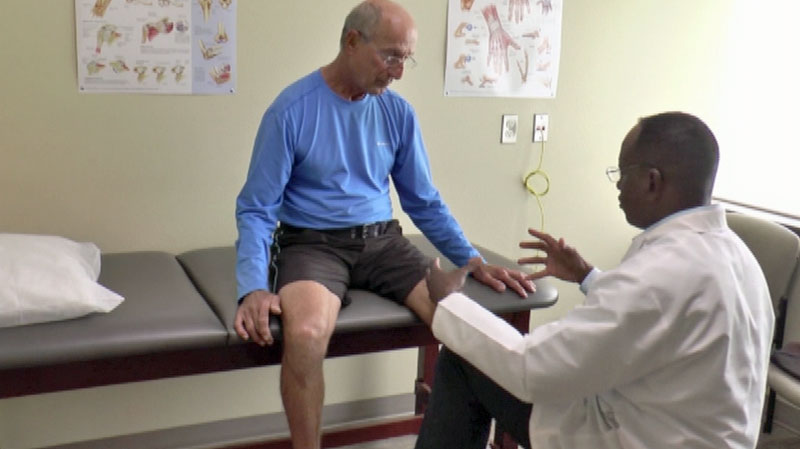During the last 20 years, the number of knee replacement surgeries has exploded by more than 160 percent among people on Medicare. No one doubts the effectiveness of the surgery, but whether patients should get both knees done at the same time is a subject of debate among orthopedic surgeons.
Jack Beye holds his own against almost any pickle ball opponent today. But just a few months ago, the 77-year-old was side-lined by knee pain.
"I could not walk anymore. I couldn't ride my bike anymore; I had difficulty shuffling around the house," he said.
So Jack joined the estimated 700,000 Americans who choose to get their aging knees replaced every year.
Dr. James Hall, MD says arthritis is the most common cause of knee pain. Surgery is often a last resort, and Dr. Hall believes it's safer to do one knee at a time.
"A lot of times when you have both your knees replaced you're not focusing on both your knees, you're focusing on one, and one knee gets neglected in the rehabilitation," Dr. Hall explained.
John Cush, MD, Rheumatologist at Baylor University Medical Center takes the opposing viewpoint. "The question is will recovery be twice as long if you have two surgeries?"
Dr. Cush — a rheumatologist and knee replacement patient — says that wasn't a problem for him.
"It may be a little bit longer for some people but in fact I was out of work for five weeks!"
Some hospitals will only work on one knee at a time for patients who are obese or have heart disease. That's because studies have shown a double-knee replacement for those patients can increase the risk of complications such as blood clots, the need for more blood transfusions, and a higher risk of death.
One thing where everyone can agree :90 percent of people who have knee replacement surgery have less pain.
Doctors say patients who decide to replace one knee at a time should wait at least three months before getting the second one. Eighty-five percent of artificial knees still work after 20 years, which is one reason the procedure is so popular.


